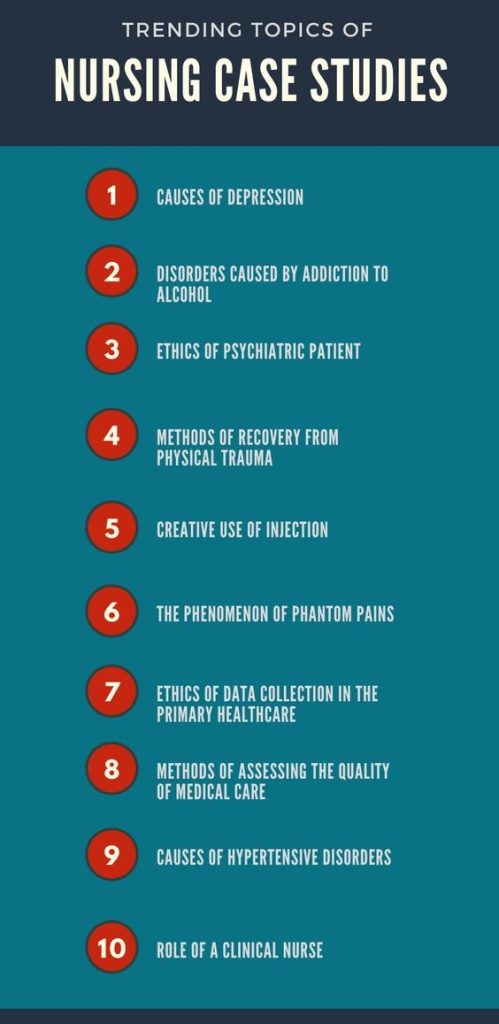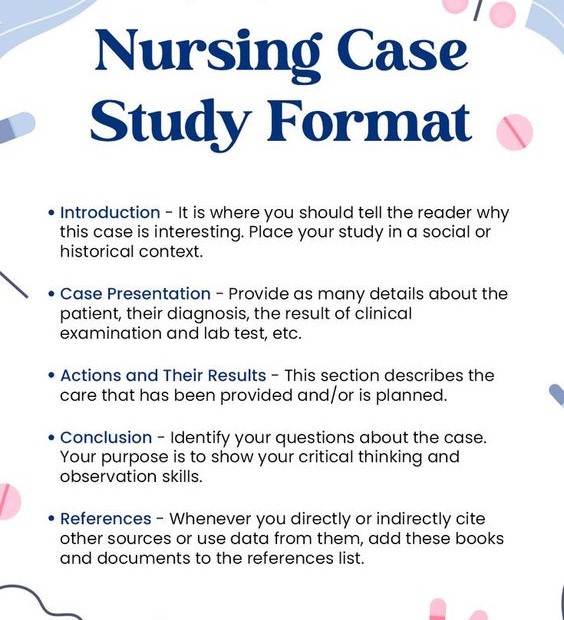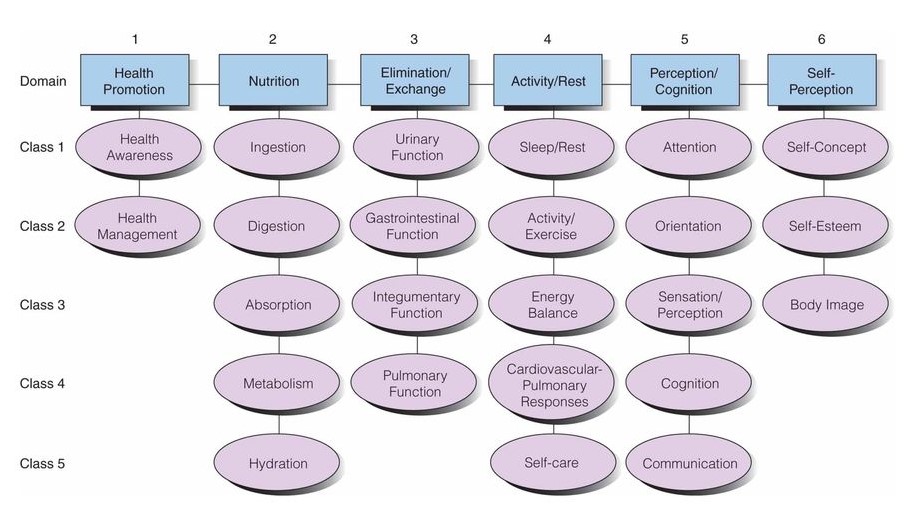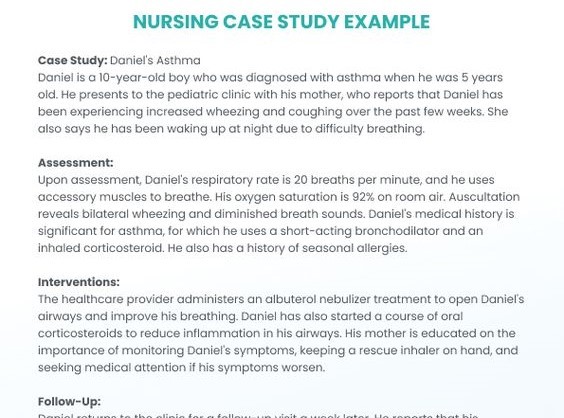
Table of Contents
Nursing school is a crucible of knowledge, demanding not just theoretical understanding but the ability to apply it in real-world scenarios. This is where the nursing case study comes in, serving as a bridge between the classroom and the clinical setting. It is a chance to delve into the complexities of patient care, demonstrating your grasp of nursing principles and your ability to think critically in challenging situations. While writing nursing case studies can be daunting, approaching them strategically can transform them from a dreaded task into a valuable learning experience.
This guide provides a comprehensive road-map to mastering the art of writing nursing case studies, equipping you with the knowledge and skills needed to excel in this essential academic exercise.
What is a Nursing Case Study?
A nursing case study is a detailed analysis of a specific patient’s health situation, including their medical history, current condition, treatment plan, and the nurse’s role in managing their care. The following is a breakdown of the key elements of a nursing case study.
1. Patient Information:
- Demographics: Age, gender, ethnicity, occupation, marital status, living situation.
- Medical History: Past illnesses, surgeries, medications, allergies, family history.
- Social History: Lifestyle, habits, support system, socioeconomic factors.
2. Current Condition:
- Presenting Symptoms: Chief complaint and other related symptoms.
- Physical Assessment: Vital signs, head-to-toe assessment findings, lab results.
- Diagnosis: The primary medical diagnosis and any co-morbidity.
3. Treatment Plan:
- Medical Orders: Medications, treatments, procedures, therapies.
- Nursing Interventions: Specific actions the nurse takes to address the patient’s needs, including medication administration, wound care, pain management, education, and emotional support.
- Expected Outcomes: Desired results from the nursing interventions and overall treatment plan.
4. Nursing Process:
- Assessment: Gathering information about the patient’s condition.
- Diagnosis: Identifying the patient’s nursing needs and formulating nursing diagnoses.
- Planning: Developing a nursing care plan with specific interventions and desired outcomes.
- Implementation: Carrying out the nursing interventions.
- Evaluation: Assessing the effectiveness of the interventions and adjusting the care plan as needed.
5. Analysis and Discussion:
- Ethical Considerations: Analyzing the ethical implications of the case and the nurse’s role in decision-making.
- Critical Thinking: Applying nursing knowledge and skills to analyze the patient’s situation and develop effective interventions.
- Reflection: Reflecting on the nurse’s experience, learning from the case, and identifying areas for improvement.
The Importance of Writing Nursing Case Studies
Nursing case studies are more than just academic exercises. They are powerful tools that bridge the gap between theoretical knowledge and real-world practice, equipping aspiring nurses with the skills and critical thinking abilities essential for patient care.
A well-constructed case study presents a complex patient scenario, complete with medical history, symptoms, and relevant social factors. Students must analyze this information, apply their knowledge of anatomy, physiology, and pharmacology, and propose appropriate interventions. This process fosters:
- Clinical Reasoning: Students develop the ability to analyze data, identify patterns, and make sound judgments.
- Critical Thinking: Case studies encourage students to think beyond textbook knowledge, consider individual patient needs, and explore different perspectives.
- Problem-Solving: Students learn to address complex issues, weigh potential risks and benefits, and develop strategies for effective care.
- Communication Skills: Case studies often involve collaborating with peers, presenting findings, and justifying treatment plans, enhancing communication and teamwork skills.
Moreover, case studies provide valuable insights into ethical dilemmas faced in patient care, allowing students to grapple with complex issues and develop their moral compass. By analyzing real-life scenarios, they gain a deeper understanding of the challenges and rewards of the nursing profession.
In conclusion, nursing case studies are not just academic requirements. Instead, they are essential tools for fostering the development of competent, ethical, and compassionate nurses who can navigate the complexities of patient care.
Examples of Nursing Case Studies:
- A patient with diabetes experiencing a diabetic foot ulcer.
- A patient with a stroke undergoing rehabilitation.
- A pregnant woman experiencing complications during labor.
- A child with asthma experiencing an acute asthma attack.
Here are additional topics for nursing case studies that you may also want to consider for your project.

By examining these elements, a nursing case study provides a complete picture of a patient’s experience, the nurse’s role in their care, and the clinical decision-making involved.
Strategies for Nursing Case Study Writing
1. Understanding the Case Study Structure:
Before diving into the specifics, it’s crucial to understand the anatomy of nursing case studies.

Although the formats may vary, the core components of a typical nursing case study include:
- Introduction: Briefly introduce the patient, their presenting symptoms, and the reason for seeking medical attention. This sets the stage for the case study.
- Patient History: Delve into the patient’s medical and social history, including relevant past illnesses, medications, allergies, family history, and lifestyle factors. This provides valuable context for understanding the patient’s current condition.
- Physical Assessment: Detail the patient’s physical examination findings, including vital signs, body systems assessment, and any significant abnormalities. This provides objective data to support your analysis.
- Diagnostic Tests: List and interpret any relevant diagnostic tests conducted, such as blood work, imaging studies, or biopsies. This helps to pinpoint the underlying cause of the patient’s condition.
- Nursing Assessment: This section is where you analyze the patient’s condition from a nursing perspective. Identify the patient’s needs, prioritize problems, and formulate nursing diagnoses.
- Nursing Interventions: Develop a plan of care, outlining specific nursing interventions to address the identified problems and achieve desired outcomes.
- Evaluation: Reflect on the effectiveness of your nursing interventions, highlighting the patient’s response to treatment and any changes in their condition.
- Discussion: Conclude with a discussion of the nursing case study, reflecting on its significance, limitations, and potential areas for improvement in your approach.
2. Choosing the Right Case Study:
The quality of your nursing case study relies heavily on selecting an appropriate case. Consider the following factors:
- Relevance: Choose a case study that aligns with your current coursework or clinical experience.
- Complexity: The case should be challenging enough to engage your critical thinking skills but not overly complex to the point of being overwhelming.
- Availability of Information: Ensure you have access to enough information about the patient’s condition and treatment to complete the nursing case study effectively.
3. Mastering the Art of Research:
Thorough research is the cornerstone of a successful nursing case study. Utilize credible sources such as:
- Nursing Journals: Stay up-to-date with current best practices and evidence-based guidelines.
- Textbooks: Consult authoritative nursing textbooks for comprehensive information on various medical conditions and treatment modalities.
- Online Medical Databases: Utilize databases like PubMed and Medline to access peer-reviewed articles relevant to your chosen case. Established academic writing platforms such as nursingpapers.us also provide samples of published case studies that you can use for research.
- Clinical Guidelines: Consult established clinical guidelines from organizations like the American Nurses Association and the World Health Organization.
4. Honing Your Analytical Skills:
A nursing case study requires more than just presenting information. It needs you to critically analyze the patient’s situation and apply your nursing knowledge.
- Identify the Problems: Start by thoroughly examining the patient’s history, physical assessment, and diagnostic test results. Based on this information, identify the patient’s primary problems and potential contributing factors.
- Prioritize the Problems: Not all problems are equal. Prioritize the patient’s needs based on urgency, severity, and the potential for complications.
- Formulate Nursing Diagnoses: Use the North American Nursing Diagnosis Association (NANDA) taxonomy to accurately identify the patient’s nursing diagnoses.

- Develop a Plan of Care: Develop a comprehensive plan of care that addresses the prioritized nursing diagnoses. This plan should include specific nursing interventions tailored to each problem.
- Justify Your Interventions: For each intervention, clearly explain the rationale behind it, referencing relevant nursing theory, research, or clinical guidelines.
5. Writing with Clarity and Precision:
Your nursing case study should be written in a clear, concise, and professional manner.
- Use Proper Medical Terminology: Utilize accurate medical terminology and avoid using slang or colloquialisms.
- Write in a Logical Sequence: Organize your nursing case study logically, progressing from the patient’s initial presentation to the final evaluation.
- Maintain a Professional Tone: Avoid using personal opinions or subjective interpretations. Present your analysis objectively and respectfully.
- Use Active Voice: Writing in an active voice makes your writing more engaging and strengthens your voice.
- Include Evidence-Based Support: Back up your claims and interventions with evidence from credible sources.
6. The Importance of Accurate Documentation:
Accurate documentation is essential in healthcare, and it’s equally crucial in nursing case studies.
- Use Standardized Abbreviations: Utilize approved medical abbreviations and avoid using informal abbreviations or acronyms.
- Maintain Patient Confidentiality: Protect the patient’s privacy by using fictitious names and avoiding any identifiable information.
- Be Thorough and Detailed: Record all relevant information accurately and concisely, including patient assessments, interventions, and evaluations.
7. Seeking Feedback and Collaboration:
Don’t hesitate to seek feedback from your instructors or peers.

- Peer Review: Have classmates review your nursing case study to identify potential areas for improvement.
- Instructor Guidance: Seek guidance from your instructors on the clarity, accuracy, and quality of your work.
- Collaboration: Working with classmates can provide valuable insights and perspectives, fostering a deeper understanding of the case.
8. Case Study Examples: Learning from Others:
Exploring nursing case studies written by others can be a valuable learning experience.
- Online Resources: Numerous established websites and academic databases like nursingpapers.us provide access to published nursing case studies for inspiration.
- Nursing Textbooks: Many textbooks include case studies as learning tools.
- Clinical Simulations: Participate in clinical simulation exercises where you can practice applying nursing knowledge in real-world scenarios.
Here is an example of a published nursing case study:

9. The Power of Reflection:
After completing a nursing case study, engage in reflective practice.
- Identify Strengths and Weaknesses: Reflect on your strengths and areas for improvement in your nursing skills and critical thinking abilities.
- Apply Lessons Learned: Consider how you can apply the lessons learned from the nursing case study to your future clinical practice.
- Seek Continuous Improvement: Use this opportunity to identify areas where you can continue to grow as a nurse.
Mastering the art of writing nursing case studies is a significant step towards becoming a skilled and compassionate nurse. By approaching this task systematically, leveraging your research and analytical skills, and seeking feedback, you can transform nursing case studies from a daunting challenge into a valuable learning experience. Remember, every nursing case study offers an opportunity to refine your knowledge, deepen your understanding of patient care, and prepare yourself for the realities of the nursing profession.
Get Professional Help with Writing a Nursing Case Study
Writing a nursing case study can be challenging, especially if you have never handled such assignments before. However, you can easily avoid the stress when you hire professional help with writing a nursing case study from phdnursewriter. We have highly skilled and experienced writers who can deliver the best quality nursing case studies, tailored to your specific instructions and goals. Do not hesitate to engage us for a professional nursing case study writing service.





